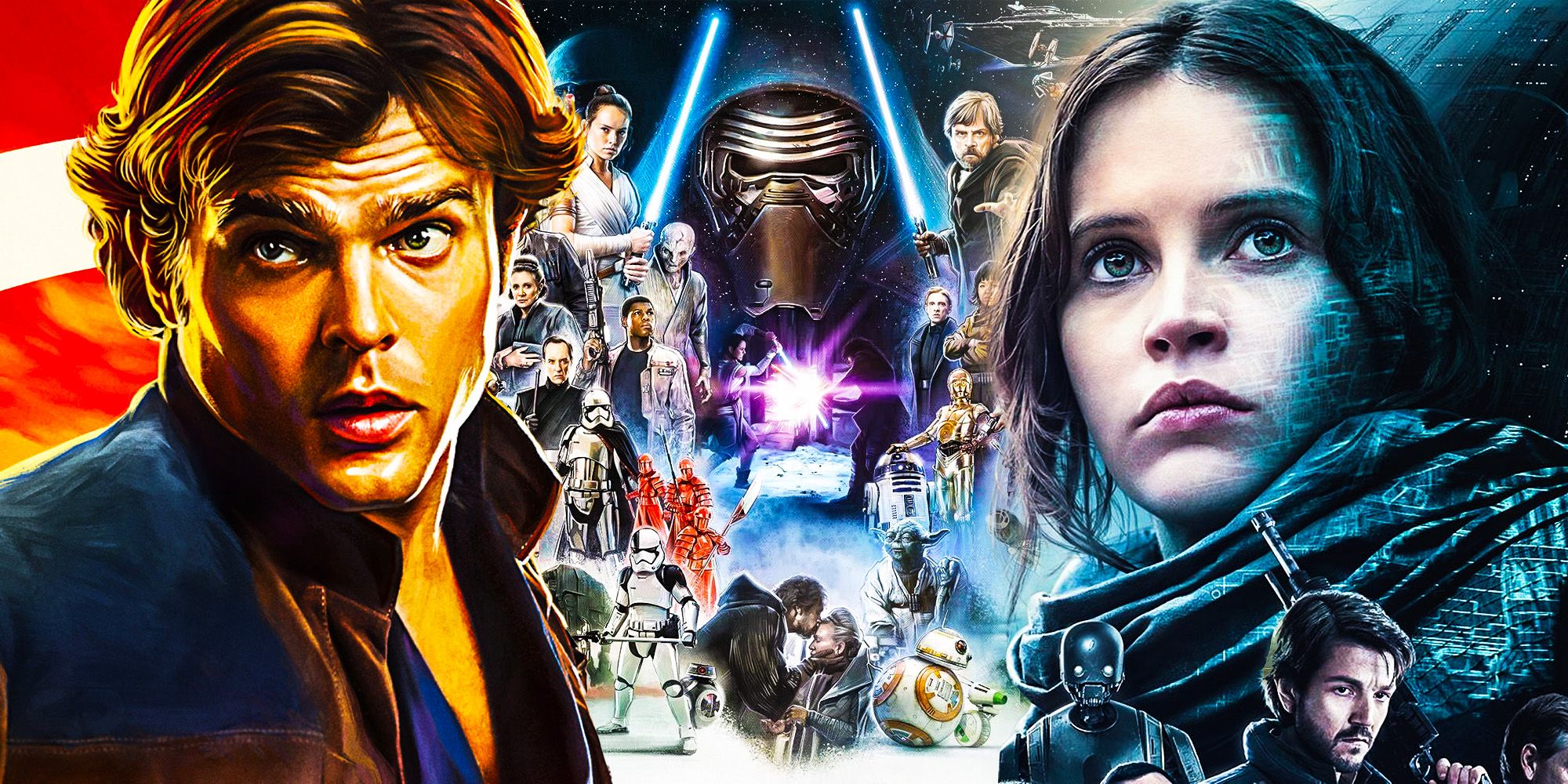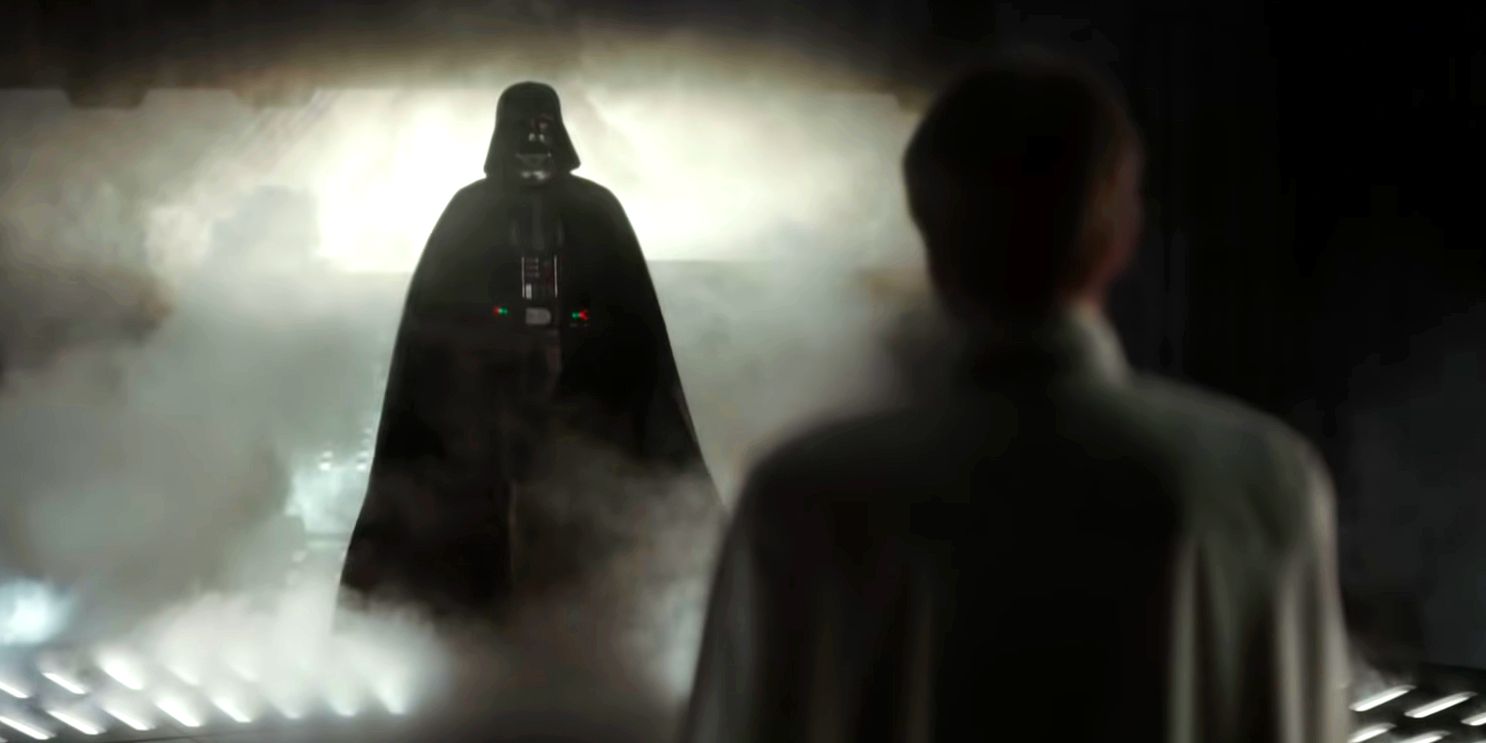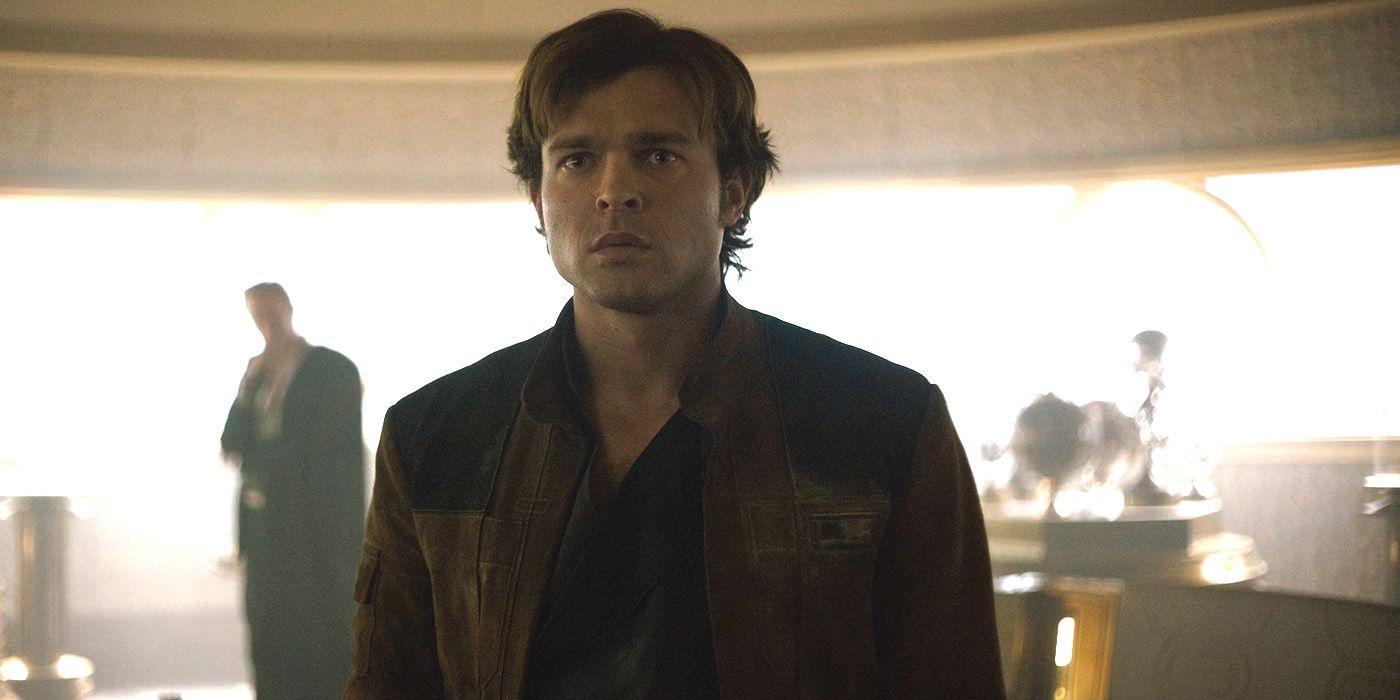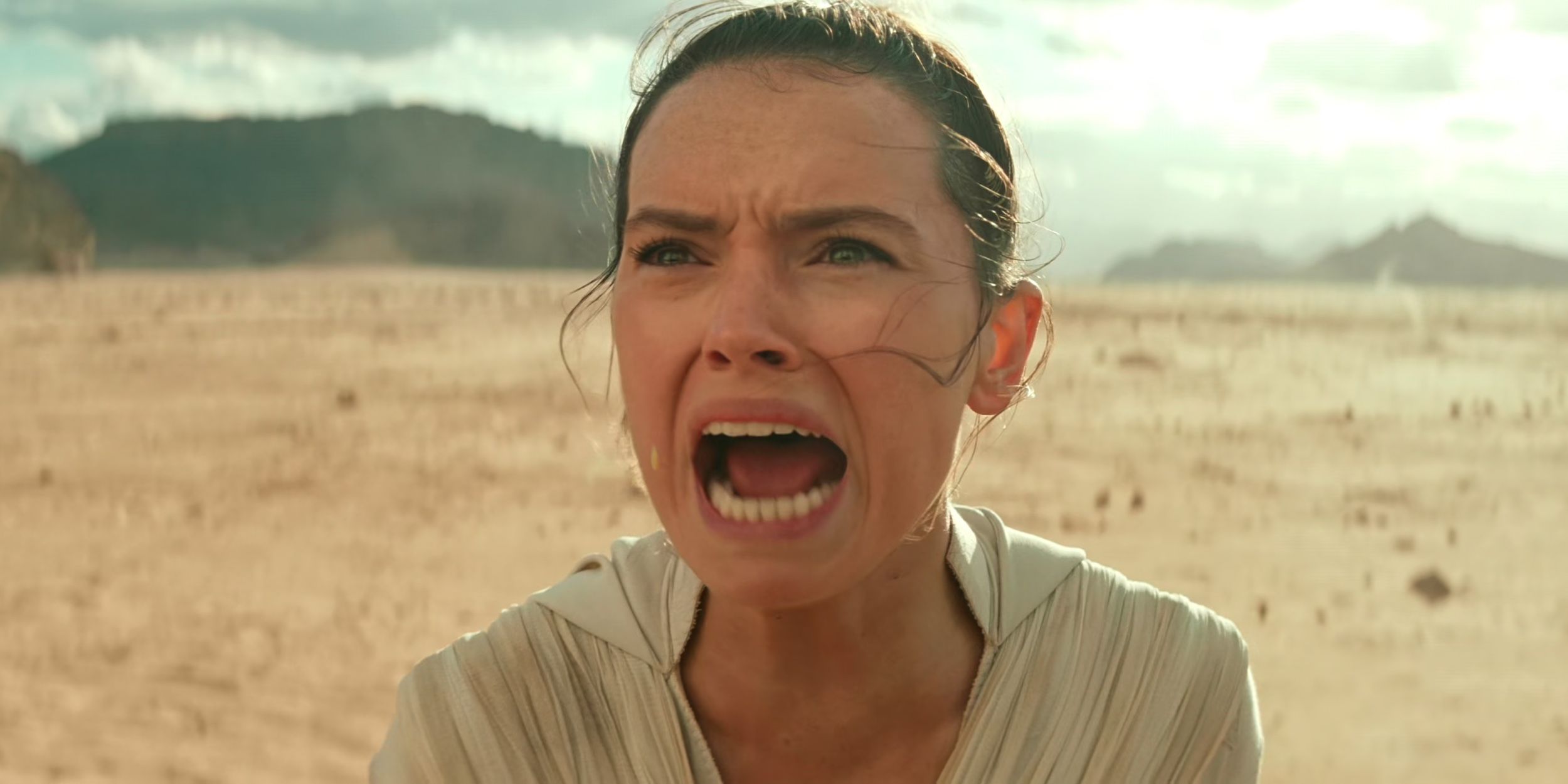Would Disney's Star Wars movies have fared better - and suffered less controversy - if both spinoffs had released before the sequel trilogy even began? The Star Wars franchise finds itself in alien territory at present. Rampant success with The Mandalorian and a wave of Kenobi-themed excitement prove Lucasfilm's Disney+ experiment represents a rousing win for all involved. On the big screen, however, a run of divisive or middling movies culminated in a lackluster response to Star Wars: The Rise of Skywalker. A lukewarm Rogue Squadron is now the only Star Wars film with a (semi) definite release date, while directors for other projects are dropping faster than the main cast of Rogue One.
Following Disney's purchase of Lucasfilm in 2012, the Star Wars movie franchise diverged in two distinct directions. On one hand, Lucasfilm sought to continue the primary Skywalker narrative through a trio of sequels - episodes 7, 8 and 9, essentially. On the other, Kathleen Kennedy and co. moved to explore George Lucas' sprawling galaxy through spinoffs plucked from across the Star Wars timeline. In their wisdom, Disney and Lucasfilm opted to run both lanes simultaneously, using the spinoffs as a buffer between sequel entries to create a steady five-year stream of annual releases.
In the end, we got Star Wars: The Force Awakens (2015), Rogue One (2016), Star Wars: The Last Jedi (2017), Solo (2018), and Star Wars: The Rise of Skywalker (2019). Would Disney's Star Wars movies have fared better if that chronology instead read: Rogue One, Solo, Star Wars: The Force Awakens, Star Wars: The Last Jedi, and Star Wars: The Rise of Skywalker?
Rogue One Captured Force Awakens' Original Trilogy Feel Without A Retread
Odd as it may seem now the world is eagerly anticipating Hayden Christensen's return as Darth Vader, George Lucas' Star Wars prequel trilogy was not especially well-loved in the early 2010s. With "meesa Jar Jar Binks" and Anakin's sandy rank still ringing fresh in the ears, the general consensus as Lucasfilm set about developing the Star Wars sequel trilogy was to recapture the original movies' magic. J.J. Abrams' Star Wars: The Force Awakens is, for that very reason, an unapologetic love letter to the past. Han Solo, Chewbacca and Leia return, the Rebellion vs. Empire premise is reestablished under different names, and the tone shifts acutely away from trade disputes and senate meetings. The reverence with which Rey and her fellow newcomers speak of the old days even mirrors how fans talked about the original trilogy.
Despite fulfilling its brief to "recapture old magic," that nostalgic obsession became Star Wars: The Force Awakens' biggest flaw. Many reviews (and later George Lucas himself) pointed out how the overall structure and premise of Abrams' Star Wars debut copied A New Hope almost to the letter. A Force-sensitive hero desperate to leave their oppressive desert planet... a giant, world-killing space station destroyed by plucky freedom fighters... the self-sacrifice of a veteran warrior from legend... Even Star Odyssey might've had a quiet word with Star Wars: The Force Awakens about copying George Lucas' homework a little more subtly.
As the first Star Wars movie in a decade, Abrams' opener set a backward-looking precedent for Disney's entire sequel era. Yet the "feel" of Star Wars' original trilogy could've been recreated without a wholesale retread of Luke Skywalker's 1977 debut - and Rogue One proves it. Set immediately before A New Hope, Gareth Edwards' Rogue One retains all the authenticity and spirit of classic Star Wars, but in the completely fresh guise of a war epic. Strong protagonists, humorous droids, and massive battles are all present, but Rogue One nevertheless provides a totally new experience for the Star Wars faithful. Had the prequel spinoff released in 2015 instead of Star Wars: The Force Awakens, Lucasfilm would've succeeded in their mission to invoke fond memories of its original trilogy... but averted the pitfall of becoming a tribute act.
Star Wars' Spinoffs Were Impacted By Sequel Reception
It's no secret that Rogue One endured extensive reshoots late in production, with Tony Gilroy reworking entire chunks of movie. The full extent of Rogue One's changes and Disney's reasons for implementing them remain a topic of debate, with conflicting statements from various parties. We can, however, rest assured that the Rogue One reshoots were far in excess of typical post-production pickups most blockbusters undergo.
The overriding reason for Rogue One's reshaping appears to be narrative confusion caused by too many cooks in the creative process, but a report from mid-2016 (originally by Deadline) claimed Disney executives were comparing Gareth Edwards' spinoff unfavorably to Star Wars: The Force Awakens, which had by then attained huge critical and commercial success. The full truth of those reports only "Disney executives" know for sure, but the idea that Star Wars: The Force Awakens' success might've impacted Rogue One is certainly a plausible one.
Rogue One ultimately succeeded in spite of its rocky production, and a final act bloodbath means you can't exactly accuse Disney of diluting the story's darker tone... but then Solo happened. Compared to the behind-the-scenes troubles Han's spinoff suffered, Rogue One was a stroll through the fields of Naboo. Again, the factors that built toward Lucasfilm hiring Ron Howard in place of Phil Lord & Christopher Miller were far from straightforward, with practical and creative elements both in play. Reports have, however, maintained how Lord & Miller championed a riskier departure from the Star Wars template, while their employers wanted something more in-keeping with the established style - the kind utilized by Star Wars: The Force Awakens.
Even post-release, Solo found itself affected by the Star Wars sequel trilogy. Han Solo's solo Solo movie had the misfortune of arriving amidst a hugely partisan Star Wars: The Last Jedi debate, and premiering to such a messy landscape very likely influenced audience perception of the spinoff. Had Rogue One and Solo preceded the Star Wars sequel trilogy, both could've developed without the looming specter of Star Wars: The Force Awakens possibly swaying the creative process, and both could've released to audiences unbiased by the successes and failures of Disney's sequel trilogy.
Starting With Spin-Offs Gives Disney Time To Plan Star Wars' Sequel Trilogy
A total lack of cohesion is perhaps the overriding criticism directed toward Disney's Star Wars sequel trilogy. Star Wars: The Force Awakens posed a whole bunch of fascinating questions. Where did Supreme Leader Snoke come from? Who are Rey's parents? Why did Luke Skywalker disappear? J.J. Abrams also laid out a roster of fascinating characters, from Rey as a resolute and talented Jedi padawan, to Finn as an ex-Stormtrooper seeking direction. Star Wars: The Last Jedi and Star Wars: The Rise of Skywalker then struggled to resolve those arcs, chopping bits, changing others, and openly contradicting the movie before. Star Wars' sequel trilogy would've benefited enormously from a clear three-movie plan that mapped out every major beat in advance.
With Star Wars: The Force Awakens premiering a mere 3 years after Disney's acquisition of Lucasfilm was announced, there simply wasn't time to plan so far ahead - but that's where releasing the Star Wars spinoffs first could've proved strategically shrewd. Rogue One and Solo are standalone stories drawing upon existing characters and events, demanding much less planning and foresight than the Star Wars sequel trilogy. Both spinoffs could've been developed in time for Lucasfilm's 2015 and 2016 release slots, and that affords J.J. Abrams an extra two years to plot out a full trilogy. By the time Star Wars: The Force Awakens then premieres in 2017, a coherent vision for the subsequent two sequels is already in place.
Evidently, Disney believed launching its Star Wars' sequel trilogy was the priority, and from a marketing standpoint, it's easy to see why "Episode VII" holds more appeal than "Remember those Death Star plans? Here's everyone who died stealing them." By pursuing both avenues side-by-side, however, Star Wars shacked its spinoffs with an unnecessary sequel trilogy burden, and burdened its sequel trilogy with the shackles of a rushed released schedule.




